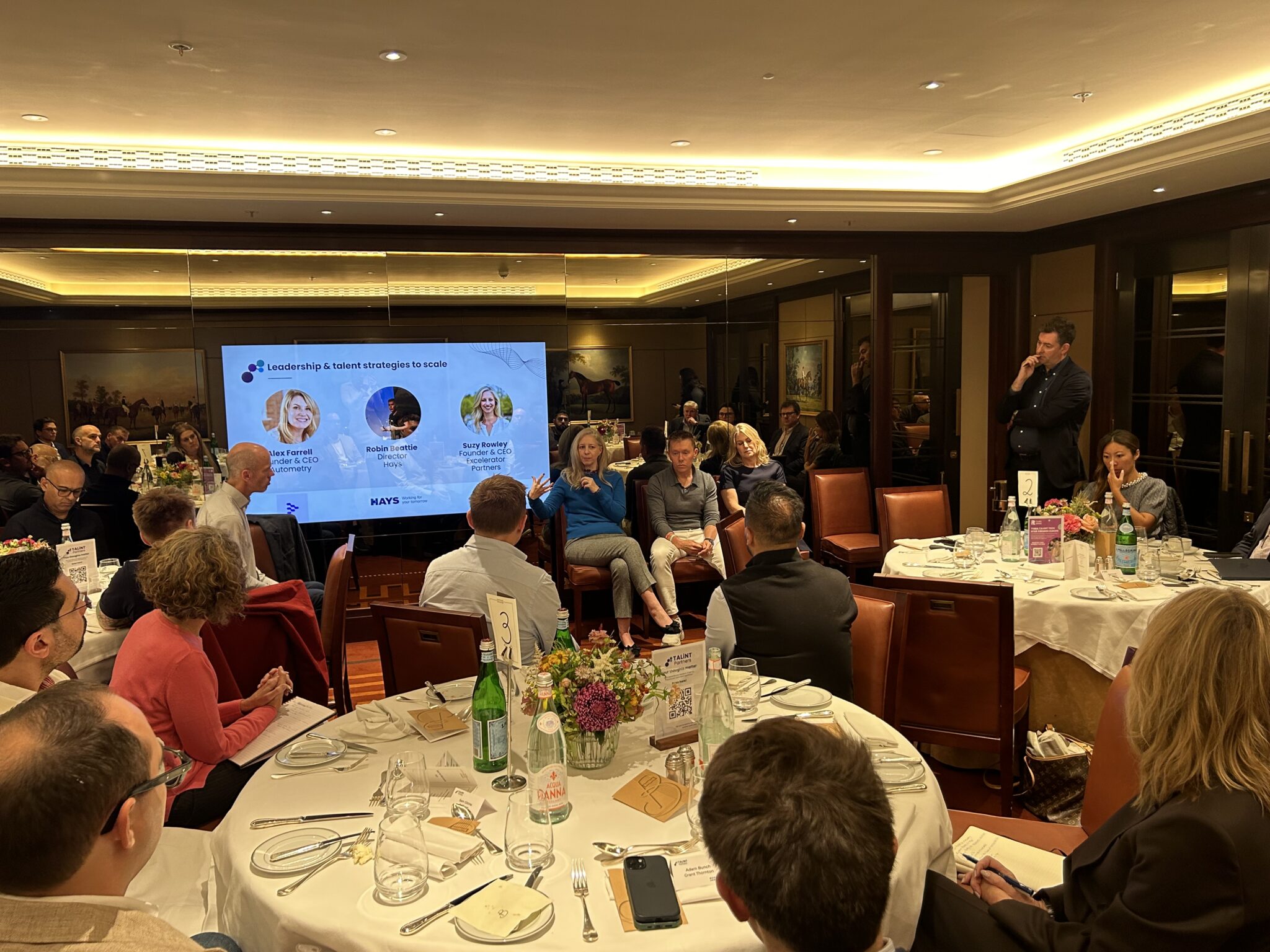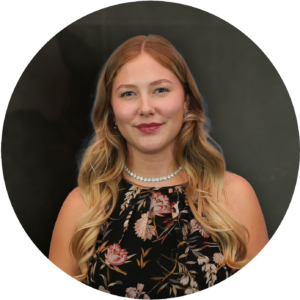With Talent Tech M&A deals rising in the first 3 quarters of the year, but valuations declining, TALiNT Partners brought together industry leaders, advisors, and founders to explore the trends, tactics and strategies driving growth and equity value in this dynamic sector. Hosted in partnership with law firm Marriott Harrison at The Beaumont Hotel in London’s Mayfair, this event offered advice on how to scale profitably and mitigate future due diligence risks.
Missed the event? We’ve got you covered with the event highlights below.
Key discussions included:
- Over 300 Talent Tech M&A transactions in the first three quarters of the year, but valuations have dropped, with multiples now at 4.2x compared to 6.9x in 2023.
- Investor expectations are shifting from a focus on growth to resilience, with interest in businesses demonstrating cash flow stability and strong retention metrics.
- Leadership capability and talent strategy is critical to scaling and securing investment, but 90% of scale-ups over-hired or mis-hired in the past year.
Panel 1: M&A lessons from 2024 and predictions for 2025
Our first panel explored the changing dynamics of M&A in the talent tech space, offering insights into buyer activity and investor behaviour. Speakers focused on market conditions and the steps that founders and CEOs should take to build value and capitalise on future opportunities.
Adam Bunch, Director of M&A at Grant Thornton, set the tone by noting that, “Positivity is coming back into the market. There is no lack of demand or interest from buyers and investors when you have a high-quality asset with a real competitive advantage. However, they are looking beyond topline growth to cashflow and key metrics on customer retention and value.”
Bullhorn has been an active strategic buyer in the recruitment tech space over the last year, most recently Textkernel and Mployee. Sam Gittins, Corporate Development Manager at Bullhorn, echoed Adam’s point about the importance of customer retention, saying: “There is definitely a shift from growth elements to durability that shows the resilience and strength of the business, particularly in terms of low customer churn and deeper, long-term client relationships, because we tend to look for acquisitions that enable Bullhorn to enhance its offering in the staffing space.”
“You need to make sure the right permissions are in place for the data you’re working with, and you own the intellectual property on AI solutions that have been developed.”
AI is both the enabler and the product in talent tech, which is creating complexity and potential IP risk for the sector. Chris Mooney, Partner at Marriott Harrison, remarked that he has seen growing demand for advice on AI on contracts and managing IP risk from suppliers that is increasingly coming up in due diligence. “You need to make sure the right permissions are in place for the data you’re working with, and you own the intellectual property on AI solutions that have been developed. If this is highlighted at a late stage of the acquisition or investment process, and you’re having to secure this from previous suppliers or contractors you might not have a good, or close, relationship with anymore, it could be costly.”
Panel 2: Leadership and talent strategies to scale
The second panel looked at how talent tech founders and CEOs can build the right leadership team to scale and secure investment. The discussion also touched on the growing role of fractional executives and advisers in managing important projects and capitalising on growth trends.
Suzy Rowley, Founder & CEO at Excelerator Partners, was a member of the founding senior leadership team at AMS who went through four PE backed management buy-outs. She now helps VC and PE backed businesses to create value and advises on how to build the right leadership team to scale. ” Strategic leadership formation is key to securing investment down the line as the main critique from investors is ‘why didn’t you deal with it earlier?’,” she said, adding that understanding the problem you need to fix is vital in sourcing the right exec or board advisor.
Rowley added that fractional C-suite roles are not only more cost-effective but allow founders to demonstrate expertise in key areas. “It’s unlikely that you will ever be able to find a senior executive with the right expertise and experience to do everything, so fractional board advisors allow you the flexibility to bring in the right people at the right time and adapt to market changes. The big question is whether you always need people with a depth of industry knowledge. For some key roles like sales and marketing, industry knowledge, contacts and reputation are valuable, but for finance and even tech a broader perspective can be more beneficial.”
Alex Farrell, now founder and CEO of Autometry, launched the IT Job Board in 2000 and was lead NED and board advisor to SourceBreaker founder, Steve Beckitt, helping him to build his leadership team. Asked about the lessons she has learned that she is bringing into her new venture, she said: “I have realised the importance of having a clear structure and business strategy in place before diving into product development to keep focused on solving the right problems. I have a lead advisor from an investment background who can provide excellent advice on finance, tax and business strategy but she is not someone I would pull into tech and implementation discussion, and it’s good to know there are fractional advisors who can help with this.”
Robin Beattie, Director at Hays, is heading up the launch of a workforce solution for scale ups and recently surveyed 50 scaling leaders about their biggest lessons on talent strategy. Commenting on the findings, he said that 90% admitted to over-hiring or mis-hiring in the last 18 months. “The cost of a mis-hire can be up to 200% of that role’s salary, so it’s an expensive but avoidable mistake with the right advice on strategic workforce planning and how best to resource, especially with more agile, outsourced solutions. Talent strategy is an important criterion for investors who want to see the best balance of people and tech, retention of high value talent, and optimal use of fractional or freelance for performance and productivity.”
“The cost of a mis-hire can be up to 200% of that role’s salary, so it’s an expensive but avoidable mistake with the right advice on strategic workforce planning.”
With speculation about CGT, Entrepreneur Relief and the new Employment Reform Bill in anticipation of the Budget on 30th October, this lunch and learn highlighted strategies for scale and resilience that founders should consider in any market conditions to grow value and improve profitability.





